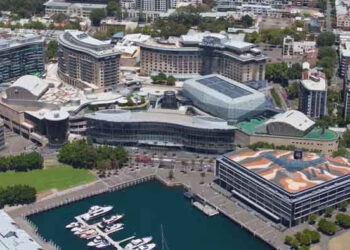Macau ended 2010 as it began it—with soaring casino revenue growth but some uncertainty over the regulatory landscape.
Given how successful the new generation of Macau’s land-based casinos are proving to be, it’s important not to overstate the potential downside in terms of relations between the Macau operators and the Macau government. Unofficial figures released on Tuesday last week suggest December’s gaming revenues grew 48 percent year on year, signalling a sustained building of the market seen over the previous 12 months.
Casino gaming is a political talking point all over the world. What governments give—either in terms of issuing formal licences or in terms of de facto permission via non-intervention (as happens sometimes with online casino services)—governments can also take away. We’ve seen that with the Unlawful Internet Gaming Enforcement Act in the United States. We’ve also seen it with the crackdown on casinos in Russia—where casinos were moved out of major citiesw to four remote locations in the country—and attempts by individual European Union states to limit expansion of land-based and online gaming services aimed at their citizens by exploiting get-out clauses in European law as it relates to open markets and fair competition.
No right-thinking person would deny Macau’s sovereign right to decide the direction of its casino industry. The main challenge for casino managers in Macau and analysts looking at the sector from outside is to try and understand if there’s an obvious strategy underlying government decisions or whether the government is taking an essentially ad hoc, reactive position as and when particular issues arise.
There is some evidence to suggest it’s a bit of both. The ‘one for one’ policy on imported labour for casino construction sites announced in late April appeared to be in reaction to local unemployed demonstrating outside the Labour Affairs Department. Then again, the government may have used the protests as a convenient cover for something they already had in mind—i.e. to slow growth on the gaming supply side.
Opinion is divided both inside and outside Macau about how much the local leadership calls the shots on policy and how much it’s the central government in Beijing that drives the process. Perhaps a more relevant point is that Macau’s unusual, semi-autonomous status within China, and its special political set up (neither a one-party system nor a representative democracy) means the Macau government tends to seek legitimacy by courting the approval of both the local population and Beijing in almost equal measure. The needs of the guest casino industry tend to trail some way behind in third place.
That’s largely because Macau’s gaming industry is an oligopoly (a government-held monopoly divided between a limited number of concessionaires and sub-concessionaires) unlike the all-comers free market (subject to probity checks) found in the US. If an operator in the US runs into regulatory or political problems of the sort first encountered in 2009 by MGM MIRAGE (now MGM Resorts International) in Atlantic City, that operator can always pull out of the market with the option of coming back in when the political dust has settled or trading conditions have improved. Alternatively, a casino operator in the US can use the threat of market withdrawal and loss of local jobs and taxes as a form of leverage with local lawmakers. No such leverage is possible in Macau. The operators know that if they pull out there will be any number of operators ready and willing to take their place. The withdrawing operator would also take a huge hit on lost infrastructure costs.
There’s a striking illustration of the difference between the political influence of the gaming industry in Las Vegas compared to Macau. In February this year, Democrat party lawmakers in the State of Nevada proposed levying a relatively modest US$32 million per year on casino operators as an additional contribution to the costs of the Gaming Control Board. The industry said no and lobbied hard against it. The State’s Republican governor said he wouldn’t support a tax increase unless there was consensus. That pretty much killed off the initiative.
In Macau, by contrast, when the government says ‘jump’, the industry tends to ask ‘How high?’ Resistance on the part of operators to this trend may not be entirely futile. But AGI has yet to see evidence that confronting the Macau government either overtly or covertly on regulatory issues has actually improved the commercial position of operators. It may actually have made things harder for them. That’s because Asia’s cultural secret weapon for dealing with troublesome individuals or corporations—passive resistance, whereby permissions slow to a crawl and piles of paperwork become ever-larger—functions in such a subtle way it’s difficult even to prove it’s happening.
An oligopoly also exists in Singapore’s casino market, so an interesting question is why doesn’t the Singapore government play faster and looser by changing the rules for its casino investors at short notice? One possible answer is that Singapore’s goals in introducing modern casino resorts were very clearly spelled out from the outset. They were to boost tourism numbers to 17 million arrivals by 2015 and tourism receipts to S$30 billion annually by that year. The Singapore government can measure the performance and success of its casino operator guests against that yardstick and if necessary ask those operators to operate more conservative or more liberal business practices (in relation to say credit issuance for VIP players) as circumstances allow.
By contrast, Macau’s aims in market liberalisation appear much more vague—i.e. a diversification of the tourist industry away from hard gambling. This vagueness means the implied social contract and the actual legal contract between government and operators is open to much wider interpretation and can become effectively a hostage to political expediency. Singapore’s clarity on casino policy and strategic economic aims is also arguably a function of the fact it operates an administrative system much closer to Western norms than does Macau.
The broad idea from the Macau government side seems to be that limiting the supply of gaming by curtailing further table supply and property expansion will somehow control demand for gaming. The thought following on from that is this will somehow mitigate or control the negative social impacts of Chinese citizens spending too much money in Macau casinos. The problem with this thinking is that such a strategy arguably only works if the supply side is controlled from both ends—i.e. from the industry side and the visitor side. As ever more Chinese citizens become economically eligible to visit Macau, the numbers coming to gamble will also rise. Even if the number of tables were capped in the market beyond 2013, all that would happen then is that table and slot occupancy will simply rise to a point where the casinos are forced to use pricing to control demand and overcrowding, as they do already by raising minimum bets during peak times. If the ‘peak’ seen at Chinese New Year in terms of players on the main gaming floors then becomes the norm, higher pricing in the mass market will assist the operators in boosting margins across the calendar year. Pricing may also possibly push out the lower earners who can least afford to splash on gambling what little discretionary spending they have.
That may be the point. Perhaps the central government and the Macau authorities would rather have the lower-earning visitors to Macau eking out their spending on fairground rides or a trip to see the newly-arrived giant pandas from China in their new home at Coloane than splashing a week’s wages on a few games of baccarat at HKD100 a time.
Pricing barriers certainly seem to be an effective mechanism for controlling demand for other consumer services such as luxury hotels. But even modest earners will stretch their hotel budget for a special occasion such as a honeymoon or wedding anniversary. Would some of Macau’s less well-heeled visitors be resistant to pricing mechanisms as applied to minimum table bets? Certainly there is some anecdotal evidence that deeply held ideas in Chinese culture about fate and luck may provide enough motivation for those consumers predisposed to gamble to stretch their budgets as the need arises. Don’t rule out the return of visa restrictions some time in 2011 if supply-side restrictions and minimum bet pricing don’t dampen player demand.






























